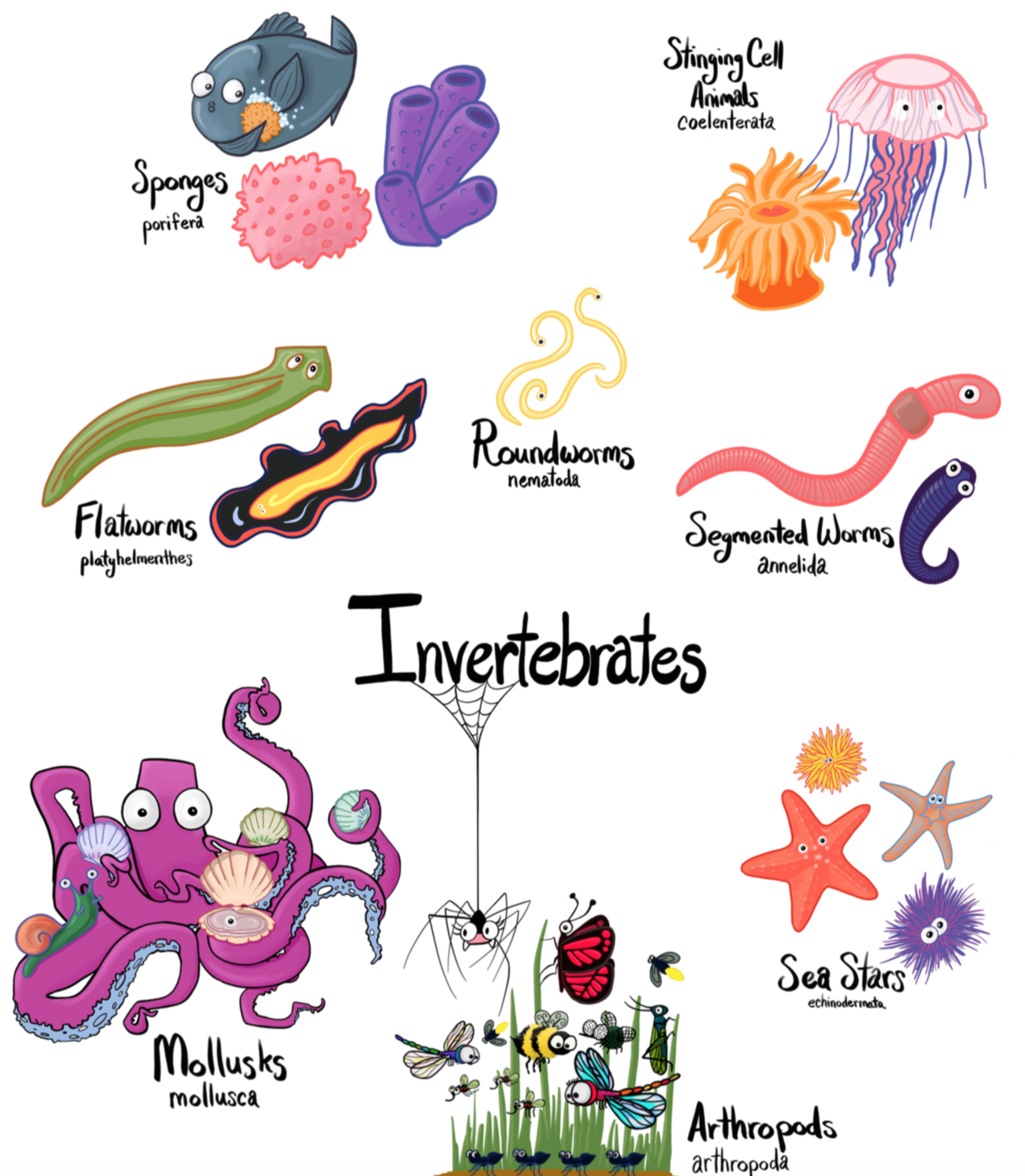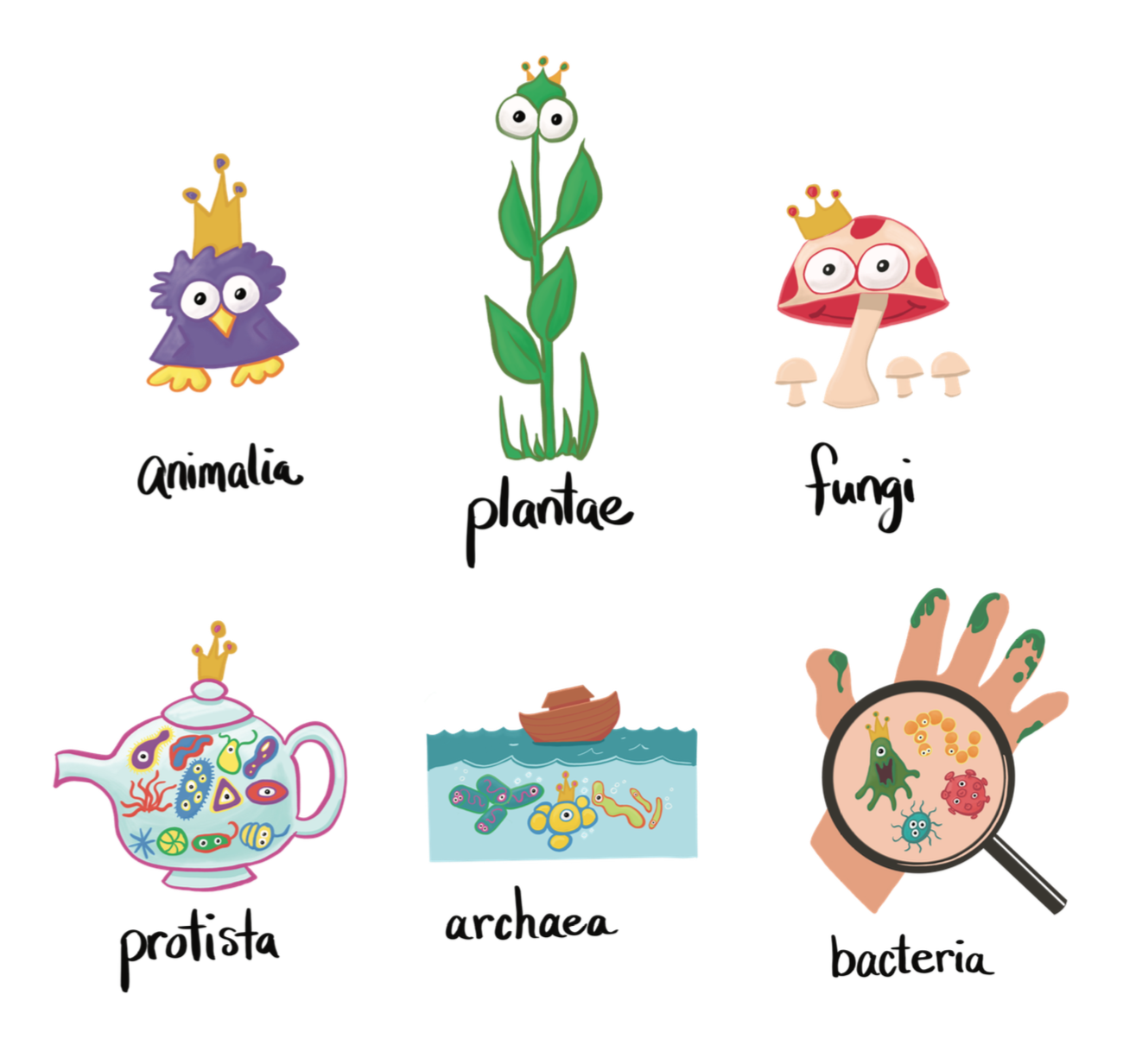As a homeschool mom, I have delved into the world of science with some particular aims in mind, specifically feeding curiosity, developing admiration in the beauty and design of creation, and finding the fun! Sometimes learning terms mean very little to young ones, and I hope to inspire both memory and understanding by creating visuals that are sticky for kids brains. By sticky I mean, let's make it stick!
You are welcome to download our FREE handy-dandy PDF with a little poster of playful visuals, facts that explain the terms, and a mini quiz to help with little minds recall what they learn.
Here is some information you might want to know about these 6 Kingdoms of living things!
Animalia is the kingdom of animals. Animals include invertebrates like insects, and vertebrates like mammals and birds. Six important aspects of animals are:
1. Animals are multicellular, which means they have many cells.
2. Animal cells do not have cell walls.
3. Animals consume food.
4. Almost every animal reproduce sexually.
5. Animals are able to move at some time during their life.
6. Animals have nervous systems and respond to the things they sense around them.
Plantae is the kingdom of plants. Important characteristics of plants are:
1. Plants are multicellular.
2. Plant cells have cells walls and unique organelles.
3. Plants produce food through a process called photosynthesis.
4. Plants usually can’t move because they are rooted to one place.
5. Plants reproduce sexually or asexually. Some reproduce with seeds through pollination, others through spores, or even asexually as with rhizomes or tubers.
Fungi are multicellular decomposers like mold, moss, and mushrooms, but a few of them can be single-celled, like yeast. Fungi digest their food outside themselves and then absorb it. This process decomposes dead things and turns them into useful things like soil. They do not produce food through photosynthesis like plants do, so they don’t need light!
Protista has the sound "tea" in it and has a large variety of organisms that all fit into one pot, or kingdom, that is. Most are single-celled organisms, but some have many cells, like algae. Protista have a nucleus, organelles, and sometimes chloroplasts. Some can move with little hair-like things called cilia, or tail-like flagella. They get their food either through photosynthesis like plants do, ingestion like animals do, or both!
Archaea (has the sound ark in the beginning!) are single-celled organisms, meaning they are so tiny they cannot be seen without a microscope. Archaea do not have a nucleus and can live through all sorts of extreme conditions and temperatures.
Bacteria are single-celled organisms that have a cell wall, but they do not have organelles or an organized nucleus. Some are helpful, such as producing vitamins or food. Others are harmful and cause disease, so wash your hands before you eat just in case you picked up some unhelpful bacteria!
Enjoy your free resource from Jolie Canoli, and stop by again- there's more to come!



